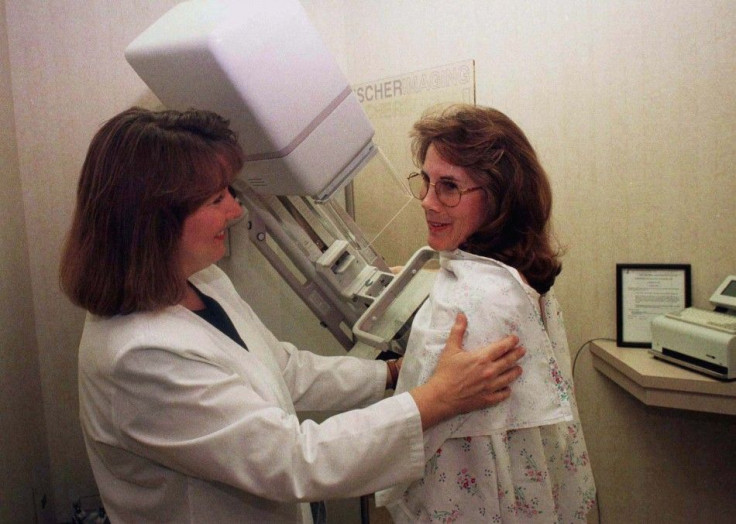Komen Cuts Planned Parenthood Grants Months After Hiring Anti-Abortion VP

Susan G. Komen for the Cure, the country's leading breast cancer charity, shocked women's health advocates on Tuesday when it announced that it pulled its grants for breast cancer screenings from Planned Parenthood. Although the charity pointed to a congressional investigation of Planned Parenthood as justification for the decision to end the five-year partnership, some critics claim the move can be attributed to Komen's recently appointed vice president Karen Handel.
Handel, who ran for governor of Georgia in 2010 with an aggressively anti-abortion platform, was named the senior vice president of Susan G. Komen for the Cure in April after losing the gubernatorial primary. In her 2010 campaign blog, Handel pledged to defund all state grants to Planned Parenthood, saying she did not support its mission while fervently professing her pro-life beliefs.
My opponents have recently recycled old attacks against me concerning Fulton County's funding of some programs through Planned Parenthood, Handel wrote, before emphasizing none of those grants were authorized for abortion services. Let me be clear, since I am pro-life, I do not support the mission of Planned Parenthood.
Handel then vowed to eliminate those grants if elected governor, suggesting her opposition to Planned Parenthood surpasses any desire to help poor women receive the preventative care services the organization offers.
Planned Parenthood: Mostly Preventative Services
Handel's opposition to Planned Parenthood's mission is perplexing since the organization delivers vital sex education and health care services to low-income men and women across the nation. More than 90 percent its services are preventative in nature, including cancer screening and prevention -- one of the professed missions of the Komen foundation -- as well as contraception services and sexually transmitted infection testing.
This tells me Komen is no longer interested in saving poor women's lives, said Terry O'Neill, the president of the National Organization for Women. Instead, they've caved to a right-wing political agenda and put someone with an aggressive, anti-Planned Parenthood platform in a cushy job.
The reproductive health care provider and advocate is currently the focus of an investigation by Rep. Cliff Stearns, R-Fla., who is seeking to determine whether the organization used federal money to fund abortion services. Planned Parenthood currently receives about a third of its funding from the Title X Family Planning Program, which specifically says federal money cannot be used to offset the cost of abortion services.
Although many Republicans have claimed Planned Parenthood is primarily an abortion provider, only 3 percent of the services it provides each year are abortion-related.
Komen spokeswoman Leslie Aun told The Associated Press that the congressional probe has made Planned Parenthood ineligible for Komen grants due to a recently adopted policy barring grants to organizations that are under investigation by local, state or federal authorities. Aun did not specify when the policy was adopted or whether Handel was involved in the decision.
Komen did not return multiple requests for comment on the issue.
Cecile Richards, the president of the Planned Parenthood Federation of America, told the AP it was alarming that Stearns' politically-motivated investigation contributed to Komen's decision.
It's hard to understand how an organization with whom we share a mission of saving women's lives could have bowed to this kind of bullying, Richards said.
Organization Establishes Emergency Fund to Replace Komen Grants
Planned Parenthood, which operates 800 healthcare centers across the U.S., has set up an emergency fund to replace the Komen grants. The Komen grants covered 170,000 of the nearly four million clinical breast screenings performed at Planned Parenthood each year, as well as more than 6,400 mammogram referrals.
Breast cancer screenings save thousands of lives each year, according to the American Cancer Society, which reports women are considerably more likely to beat the disease if it is diagnosed before becoming symptomatic. About 1 in 8 U.S. women will develop invasive breast cancer over the course of her lifetime.
O'Neill said the Komen foundation's deference to political pressure contradicts its stance as the global leader in the fight against breast cancer.
They are no longer the Susan G. Komen for the Cure foundation. They are the Susan G. Komen against women foundation, O'Neill said.
--
© Copyright IBTimes 2024. All rights reserved.











